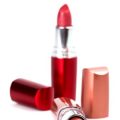1. Understanding the Link Between Stress and Acne
In today’s fast-paced American lifestyle, stress has become almost unavoidable. Whether it’s juggling work deadlines, dealing with financial pressures, or balancing family responsibilities, chronic stress is part of daily life for many. But did you know that this constant psychological stress can directly affect your skin—especially when it comes to acne?
How Stress Impacts Your Skin
When youre stressed, your body goes into “fight or flight” mode, releasing a hormone called cortisol. While cortisol helps your body respond to immediate threats, consistently high levels can wreak havoc on your skin. Cortisol signals your sebaceous glands to produce more oil (sebum), which can clog pores and lead to breakouts.
The Chain Reaction of Stress on Skin
This hormonal shift doesnt just stop at oil production. It also increases inflammation throughout the body and disrupts the skins natural barrier function. This makes it easier for bacteria to thrive and for acne to worsen.
Common Stress-Related Skin Reactions
| Stress Response | Skin Effect |
|---|---|
| Increased Cortisol Levels | Boosts oil production leading to clogged pores |
| Inflammatory Response | Makes existing acne more red and painful |
| Poor Sleep Due to Stress | Slows down skin repair and regeneration |
| Anxiety Eating Habits | Diets high in sugar or dairy may trigger breakouts |
The Role of Lifestyle in Acne Triggers
The American lifestyle often includes long hours at work, irregular meals, limited physical activity, and high caffeine intake—all of which contribute to stress. Add in digital overload from constant screen time and social media pressure, and its no wonder our skin is suffering.
If youve ever noticed that your breakouts get worse during finals week, after a stressful move, or during a busy season at work, youre not imagining things. Your skin is simply responding to what’s happening inside your body.
A Mind-Skin Connection Worth Noticing
Your mental well-being plays a big role in how your skin behaves. Understanding this connection is the first step toward managing both your stress levels and your acne. In the next section, we’ll look at specific lifestyle habits common in the U.S. that may be contributing to this cycle—and what you can do about it.
2. The American Hustle: Work Culture and Skin Health
In the U.S., many people live by the “work hard, play hard” mindset. While this drive can lead to career success, it often comes at a cost—especially when it comes to your skin. Long work hours, constant connectivity, and high job expectations are all part of the modern American lifestyle. Unfortunately, they also contribute to chronic stress, which is a known trigger for acne and other skin issues.
How Work Stress Impacts Your Skin
When youre under stress, your body releases more cortisol, also known as the stress hormone. Elevated cortisol levels can increase oil production in your skin glands, leading to clogged pores and breakouts. Combine this with poor sleep habits and less time for skincare routines, and its easy to see how work-related stress can take a toll on your complexion.
Common Workplace Stressors That Affect Skin
| Stress Factor | Impact on Skin |
|---|---|
| Long Work Hours | Less time for rest and self-care; leads to dull skin and increased breakouts |
| High Job Expectations | Triggers anxiety and hormonal imbalance, both of which can worsen acne |
| Always-On Mentality | Disrupts sleep patterns and reduces downtime needed for skin repair |
The Role of Sleep Deprivation
Poor sleep is another side effect of Americas intense work culture. Whether its late-night emails or scrolling through work messages in bed, lack of quality sleep prevents your skin from going through its natural overnight repair process. This can result in puffy eyes, dark circles, dryness, and more frequent breakouts.
Treating Your Skin While Managing Stress
If you cant change your workload right away, consider adjusting your skincare routine to compensate. Look for calming ingredients like chamomile, niacinamide, or aloe vera that help soothe stressed-out skin. Staying hydrated and using non-comedogenic moisturizers can also help maintain your skin barrier during tough weeks.
Quick Tips for Busy Professionals
- Set boundaries: Turn off work notifications after hours to allow your mind—and skin—to unwind.
- Stick to a simple skincare routine: Even just cleansing and moisturizing twice a day can make a big difference.
- Hydrate: Keep a water bottle at your desk to remind yourself to drink regularly.
- Mindful moments: Take short breaks throughout the day to breathe deeply or stretch—it helps reduce stress hormones.
The connection between stress and acne is real, especially in the fast-paced American workplace. Recognizing how daily habits affect your skin is the first step toward healthier choices—for both your mind and complexion.

3. Diet, Convenience, and Breakouts
When it comes to stress and acne, what we eat plays a bigger role than most people think. In the U.S., convenience often drives food choices—fast food drive-thrus, processed snacks, sugary drinks, and quick microwave meals are part of everyday life. While these options save time in a busy schedule, they can take a toll on your skin.
How the American Diet Triggers Acne
Many common foods in the typical American diet are high in sugar, dairy, and refined carbohydrates. These ingredients can spike insulin levels and increase inflammation in the body, which may lead to more oil production and clogged pores—both major contributors to acne.
Common Acne-Triggering Foods
| Food Type | Examples | How It Affects Skin |
|---|---|---|
| Sugar-Heavy Foods | Soda, candy, pastries | Spikes blood sugar and insulin levels, increasing oil production |
| Dairy Products | Milk, cheese, ice cream | May influence hormones that trigger acne |
| Processed Carbs | White bread, chips, instant noodles | Cause inflammation and increase likelihood of breakouts |
The Stress-Food-Acne Cycle
When youre stressed out—whether from work deadlines or daily responsibilities—its easy to reach for comfort foods. Unfortunately, those same foods can worsen acne. The cycle looks something like this:
- You feel stressed.
- You crave convenience or comfort foods.
- You eat foods high in sugar or dairy.
- Your hormone levels shift and inflammation increases.
- You notice more breakouts.
This loop can be tough to break because both stress and poor diet feed into each other. Understanding this connection is the first step toward making better choices for your skin.
Small Changes That Make a Big Difference
- Swap soda with water or unsweetened tea.
- Choose whole grains over white bread or pasta.
- Add more fruits and veggies to your meals—theyre naturally anti-inflammatory.
- If you notice dairy triggers your acne, try plant-based alternatives like almond or oat milk.
A healthier diet doesnt mean giving up all your favorite foods—it just means being mindful about what youre putting into your body. Your skin will thank you for it.
4. Screen Time, Sleep Deprivation, and Skin Strain
In todays fast-paced American lifestyle, many of us spend hours in front of screens—whether its for work, school, or scrolling through social media. While it may seem harmless, too much screen time can increase stress levels and lead to poor sleep, both of which are major triggers for acne.
How Screen Time Impacts Your Skin
Extended exposure to screens doesnt just strain your eyes—it also affects your skin. The blue light emitted from phones, tablets, and computers can disrupt your bodys natural sleep-wake cycle, known as the circadian rhythm. When this rhythm is off, it can lead to hormonal imbalances that show up on your face in the form of breakouts.
The Vicious Cycle: Stress, Sleep Loss, and Acne
Lack of quality sleep caused by late-night screen use increases cortisol levels (the stress hormone). High cortisol levels stimulate oil glands in the skin, which can clog pores and trigger acne. Heres a look at how these factors connect:
| Factor | Effect on Body | Impact on Skin |
|---|---|---|
| Excessive Screen Time | Disrupts sleep patterns | Triggers hormonal imbalance and breakouts |
| Poor Sleep Quality | Raises stress hormone (cortisol) | Increases oil production and inflammation |
| Digital Overload | Mental fatigue and anxiety | Worsens existing acne conditions |
Small Changes That Can Help
You dont need to completely unplug to improve your skin. Try setting screen curfews an hour before bed, use blue light filters on devices, and aim for 7–9 hours of restful sleep each night. Being mindful of your digital habits not only benefits your mental well-being but also gives your skin a chance to heal and glow.
5. Managing Stress for Clearer Skin
Living in the U.S. often means juggling a fast-paced lifestyle, long work hours, and endless to-do lists. These stressors dont just affect your mental well-being—they can also show up on your skin. If youre noticing more breakouts when life gets hectic, youre not alone. Fortunately, there are practical, everyday ways to manage stress and support clearer skin.
Mindfulness Practices That Fit Your Schedule
You don’t need to spend hours meditating to feel calmer. Even a few minutes a day can make a difference. Try these simple techniques:
| Mindfulness Tip | How to Do It | When to Use |
|---|---|---|
| Deep Breathing | Inhale for 4 counts, hold for 4, exhale for 4 | Before meetings or during traffic |
| Body Scan | Mentally check in with each part of your body | Right before bed or after waking up |
| Gratitude Journaling | Write down 3 things you’re thankful for | Each morning or night |
Exercise: A Natural Stress Reliever
You don’t have to hit the gym hard every day. Consistent movement can help regulate cortisol (the stress hormone) and improve circulation, which benefits your skin. Here are easy ways to stay active:
- Lunchtime walks: Step outside for a brisk 20-minute walk between Zoom calls.
- At-home workouts: Try short YouTube fitness routines that fit into your busy schedule.
- Stretch breaks: Set a timer to stretch every hour if you’re sitting all day.
Skincare Routines for High-Stress Days
A good skincare routine doesn’t have to be complicated—especially when youre stressed. Focus on consistency and calming ingredients. Here’s a simple routine tailored for stressful days:
| Step | Product Type | Recommended Ingredients |
|---|---|---|
| Cleanser | Mild foaming or cream cleanser | Ceramides, chamomile extract |
| Toner (optional) | Hydrating toner or mist | Aloe vera, rose water |
| Treatment (AM/PM) | BHA serum or spot treatment (if needed) | Salicylic acid, niacinamide |
| Moisturizer | Lightweight gel or cream moisturizer | Squalane, hyaluronic acid |
| Sunscreen (AM) | Broad-spectrum SPF 30+ | Zinc oxide, titanium dioxide |
Create Moments of Calm in a Busy Life
The American lifestyle can be intense—but adding small habits like listening to calming music during your commute or unplugging from social media at night can go a long way. Find what works best for you and make it part of your daily routine.
Your Skin Will Thank You!
A little self-care can do wonders—not only for your mind but also for your skin. By managing stress through mindfulness, regular movement, and a gentle skincare routine, you’re giving your skin the best chance to stay clear and healthy—even on the busiest days.


